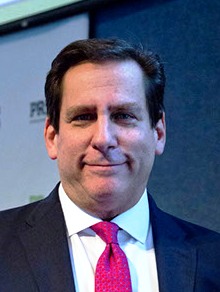
People now have unprecedented levels of access to information that is readily obtainable anytime anywhere. This profusion of information – some of which is true and some not so true — presents an increased need to process, understand and act upon the opinion-shaping material which influences stakeholders, the marketplace and society in general.
With the need for constant vigilance, Public Relations serves most organizations as its sword and shield, monitoring emerging issues to help address threats and to pursue opportunities. This proactive communication process represents PR’s unique ability to quickly frame issues through context, dialogue and action, often supplementing through real-time traditional and social media analysis the intelligence gleaned more slowly through surveys and conventional data streams. The progression of tracking issues, building understanding, creating alignment and executing communication helps organizations achieve positive differentiation and brand loyalty.
Balancing Reputational Risk with Brand Marketing
The abundance of information sources — combined with the polarizing positions which many sources represent — creates incubators for reputational risk, the cost of which can be catastrophic. To protect the organization, communicators must monitor, analyze and execute upon trends while there’s time to act. These days, an organization and its brands are subject to an excess of attention whether the news is generated by the organization or the opposition. Recently, the CEO of one of America’s largest banks spoke to reality when he warned of “negative headlines.” And the “fake news” phenomena is not confined to politics: Just this week, false rumors surfaced about the discontinuation of an iconic candy. Whether the information is true or false, communicators are the first line of defense.
To simultaneously leverage opportunities and defend against risk, evolved communicators make informed decisions through the identification of known and hidden factors by performing high-integrity due diligence of news and social media as well as other third-party relationships. This form of communications research identifies emerging issues and classifies them as either “risk” or “opportunity” for the organization, its employees, its customers and other stakeholders. Communicators seek to discover the driving influences around the globe and within local markets to identify marketing, political and regulatory factors to either mitigate or accelerate momentum as needed.
Sword and Shield
Public Relations is more than media and more than brand-building. In times of growing skepticism, Public Relations defends against corporate mistrust by engaging and promoting dialogue in a consistent, visible and genuine manner. Ideally, authentic and transparent communication reinforces a constructive predisposition during good times as well draws on an organization’s positive reputation during times of scrutiny or crises. To do so, communicators need accurate research, actionable insights and the forethought to act.
Questions Every Public Relations Investment Decision Maker Should Ask
- What is the extent of our customer’s loyalty to our brand? What are we doing to improve it?
- Do our customers trust us? What do we need to do to earn even greater levels of trust?
- What is the reputation of our organization? What are we doing to improve our reputation among key constituents?
- What controls do we have in place to ensure our communications performance can be measured and our communicators held accountable?
 Mark Weiner is the Chief Executive Officer of PRIME Research, LP, an international research-based communications consultancy helping many of the world’s most admired companies and brands to improve their PR-ROI. Connect with Mark at weiner@prime-research.com or follow him on Twitter at @weinermark.
Mark Weiner is the Chief Executive Officer of PRIME Research, LP, an international research-based communications consultancy helping many of the world’s most admired companies and brands to improve their PR-ROI. Connect with Mark at weiner@prime-research.com or follow him on Twitter at @weinermark.



